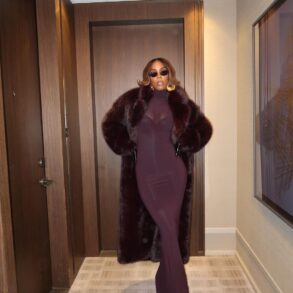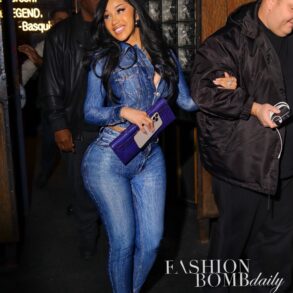Knight is a local DJ and rapper who lives in North Park.
I bought my first hip-hop single as a kid. It was the Sugarhill Gang “Rapper’s Delight.” That’s when I fell in love with hip-hop. Later on in life, in the ’90s when I was about 22 years old, I started DJing, which allowed me to express myself through hip-hop music. Hip-hop wasn’t just music though, it was a culture. It included four elements — break dancing, rapping or emceeing, graffiti and DJing. For the last 50 years hip-hop has influenced mostly everything mainstream in the U.S., from fashion to TV commercials. It’s become the epicenter of pop culture, whether it’s streetwear or sneaker culture or street art, they all trace back to hip-hop.
I lived and breathed hip-hop everyday growing up in San Diego. I knew I wanted to be a part of the hip-hop culture when I saw people’s reactions to songs the DJs were playing. The ’90s hip-hop was everything for me. Hip-hop was not only a genre of music that people could really use to express themselves, it also changed the way they dressed.
Hip-hop saved my life. It kept me off the streets and away from drugs. I spent most of my young life in record stores searching for hip-hop records, going state to state and digging in the crates. As for hip-hop DJing, you could show who you were as a DJ by the records you played, and you really had to be on top of it to be the No. 1 DJ in the city.
Hip-hop used to be fun in the ’90s, and most of the time had a positive message, unlike today’s hip-hop that is mostly negative. Moving forward, us hip-hop teachers need to keep teaching the younger generation about the genre. We need to become mentors and lead them on the right path, while insuring that the hip-hop culture supports them. I’m here in 2023, moving the culture forward to inspire the youth through DJing and also holding seminars on public speaking.
Hip-hop was very different 50 years ago. Now I feel hip-hop has lost most of its elements because the youth today are not very educated on where hip-hop started or where it came from.
Hip-hop was introduced to the world by a gentleman by the name of Clive Campbell, or, as many others know him, DJ Kool Herc. He is sometimes called the founder of hip-hop. It started in the South Bronx in New York City. We also had rappers such as N.W.A. and Tupac who were exercising their form of activism against police brutality and the justice system. Public Enemy’s Sister Souljah also played a major role in articulating her thoughts concerning politics and race. Other rappers such as Nas, Jay-Z, A Tribe Called Quest and The Fugees were using their talents to spread meaningful or heartfelt messages in their songs.
In the words of KRS-One: “Rap is something you live; hip-hop is something you do.”








